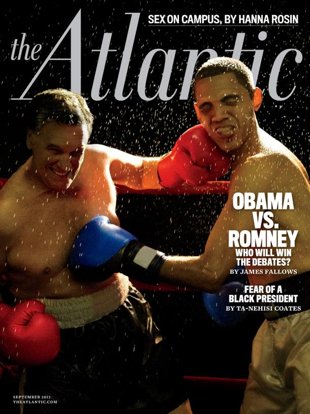Image Credit: Published Link
Two days ago, on the eve of the first presidential election debate, President Obama’s team began running a new ad targeting Mitt Romney on outsourcing and China. The ad starts with a still photograph of Barack Obama and his gruff voice booms in the background, “I am Barack Obama and I approve this message.”
Next, there is an empathetic voice that talks over photos of several Chinese manufacturing firms, “these machines could have been made here in America,” it declares. The ad goes on to say that Mitt Romney’s private equity company, Bain Capital, invested in an appliance company that “maximized profits by paying its workers next to nothing under sweatshop conditions in China.”
This was not the first time Obama was clearly posturing himself against China. Five days ago, President Obama became the first president in 22 years to issue a formal order blocking foreign investment from a Chinese owned company into the United States on national security grounds. There is no doubt that Americans are insecure about China’s economic development. Remarkably, this is the first presidential election where China’s economic rise has become one of the top election issues.
Even in last night’s presidential debate Obama spoke about “Economic Patriotism” – a term that would make his stand clear on a combination of issues such as outsourcing, sweatshops, auto parts and a dominant currency. Mitt Romney, on the other hand, has pledged to label China “a currency manipulator” on his first day in office, if he is elected. He has also promised to balance the budget by questioning whether federal programs need to be run by borrowing money from China. Clearly, more than a trillion dollar US treasury bonds that China holds is giving the leaders some sleepless nights.
We are clearly standing at the cusp of a global leadership change. While it might be too soon to call the US, the leader of the past, it is surely not too soon to call China a current economic leader of the world. Both countries have come a long way since the Shanghai Communiqué was signed in 1972, outlining the social, political and ideological differences between the two countries and also stating the shared principles of non-aggression, non-interference, equality and peaceful coexistence. For the United States, opening a dialogue with China was seen as a way to maintain a power balance with the Soviet Union, its primary concern at the time. Today, China is their primary concern.
Unfortunately, in this era of linked, global economies, the world will rely on the US voters to elect a US president who would play the China card carefully, considering we are talking about the two largest economies of the world.
Published in: Tehelka
Published in: October 2012
Link: http://blog.tehelka.com/us-presidential-elections-playing-with-the-china-card/


